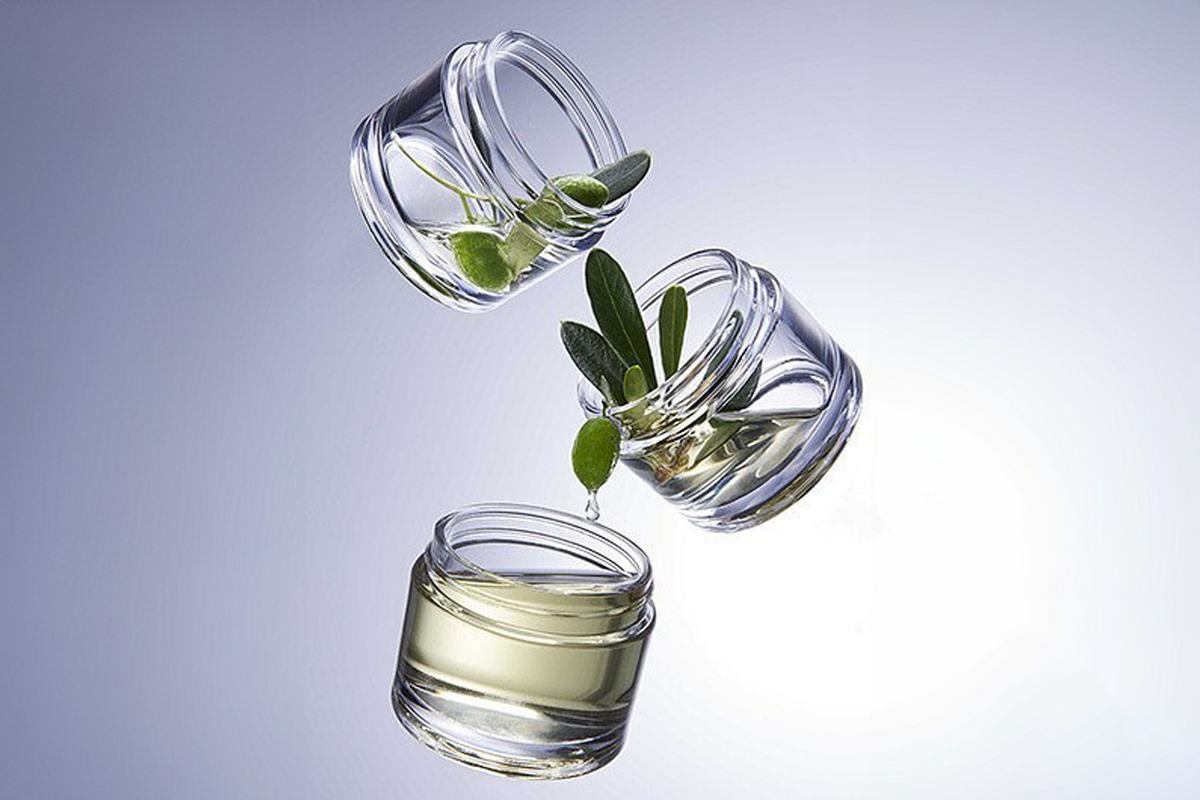
Squalene vs. Squalane: Key Differences and Origins
|
|
Time to read 3 min
|
|
Time to read 3 min
If you've ever checked the ingredients on your face oil or serum, you might have noticed 'squalene' or 'squalane' on the label. Unlike some intimidating chemicals, these names sound pretty harmless — and since they're natural ingredients, they pop up in lots of skincare products. However, their origin story isn't quite as harmless as it seems. While squalene and squalane might look and sound similar, there's an important distinction between the two.
Squalene is naturally produced by our sebaceous glands to hydrate and maintain our skin's barrier. It's a natural emollient that locks in moisture, keeping fine lines and dry skin at bay. However, our natural production of squalene starts to dip in our mid-twenties. To keep their skin's moisture barrier intact, many people turn to topical applications. The catch? Squalene is highly unstable and goes bad quickly. That's where squalane, with an "a," comes in.
Squalane is a hydrogenated form of squalene, making it much more stable. You'll find squalane in cosmetics like face creams, oils, and serums. Think of it this way: squalene exists in living bodies, while squalane is what ends up in your beauty products. However, there's a darker side to this story. Many cosmetics use squalene and squalane sourced from animals, specifically from one of the ocean's most feared predators: sharks.
Squalane vs. Other Oils: What Sets It Apart?
Squalane stands out among other oils due to its unique molecular structure and lightweight texture, allowing rapid absorption without leaving a greasy residue. Unlike heavier oils, such as coconut or olive oil, squalane mimics the skin's natural lipids, making it an excellent emollient that effectively hydrates and locks in moisture. Its stability means it doesn't oxidize as quickly as some plant oils, ensuring longer-lasting benefits in skincare formulations. Incorporating squalane into your skincare routine can make a huge difference!
Say "shark" and most people picture a terrifying creature rushing through the water with jaws agape. But in reality, sharks should be more frightened of humans. It's estimated that 2.7 million sharks are killed for their livers every year. Sharks, especially deep-sea species living between 300 to 1500 meters, have extremely oily livers that help them maintain buoyancy and survive deep-sea pressures. About 96% of shark liver oil is pure squalene; depending on the species, a shark's liver can account for up to 20% of its body weight. That's a lot of oil, which ends up in cosmetics like sunscreen, foundation, moisturizer, lipstick, eye makeup, and tanning products.
Around 50 species of sharks are fished for their livers, many of which are endangered. In a practice akin to shark-finning, squalene fishermen cut out the shark livers and toss the remains back into the ocean. This is called "shark livering." As the number of sharks declines, so does the health of our delicate marine ecosystems. Sharks are apex predators, keeping ecosystems in balance and preventing species overgrowth that could devastate coral reefs or fish populations. By preying on sick or weaker animals, sharks also prevent disease spread and encourage genetic fitness in fish species. Without sharks, our oceans are thrown into peril.
Olives, The Ocean's Unsung Heroes
Luckily for sharks (as well as the entire marine ecosystem), squalane can be alternatively sourced from plants. Olives are a top vegan source of squalane, offering the same benefits as shark liver oil but without harming marine life.
Why is Squalane Ideal for All Skin Types?
Olive-derived squalane can be suitable for nearly every skin type. Its lightweight, non-comedogenic nature means it hydrates without clogging pores, making it ideal for oily and acne-prone skin. For dry or sensitive skin types, squalane provides essential moisture and helps strengthen the skin's barrier, reducing irritation and flakiness. Its stability and fast absorption make it a great option for combination skin, balancing hydration without feeling greasy. Overall, olive-derived squalane has gentle yet effective moisturizing properties. It's odorless, cruelty-free, and a perfect choice for conscious skincare.
In some cases, however, it's impossible to gauge whether the squalane in a cosmetics product is sourced from animals or plants. That's why it's important to either look for labels that say the product is 100% vegan or to follow up with the manufacturer.
Products with Squalane

